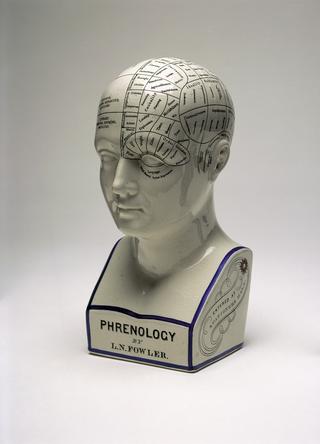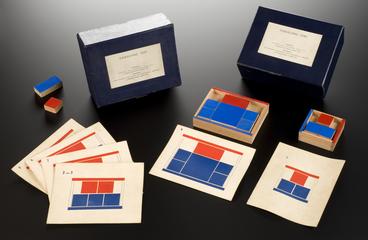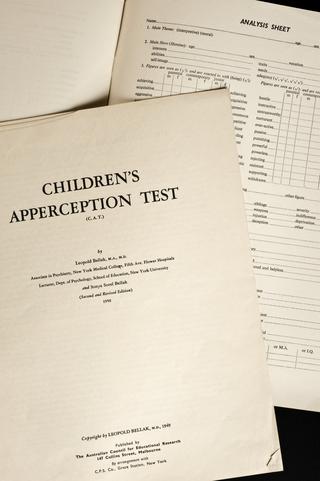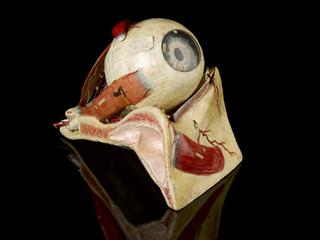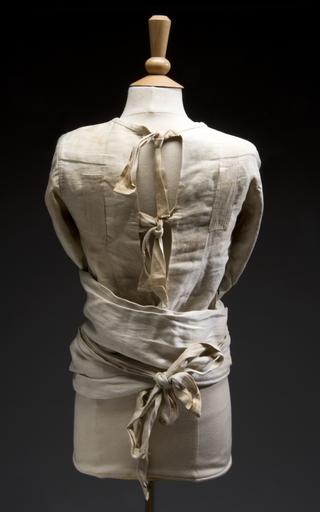
Electroconvulsive therapy machine, England, 1945
- maker:
- Ferranti Limited

Electroconvulsive therapy (ECT) machine with two crude head electrodes and early mains lead with plug, Spencer Paterson Mark lV, serial number 244, English, 1946-1950. Ohmmeter made by Ferranti Ltd. Timing dial was actually a telephone dial. Psychiatrist Arthur Spencer Paterson (1900-1983), who worked for most of his career at West London Hospital, did much to help introduce ECT in Britain. See note.
Electroconvulsive therapy (ECT) was a treatment developed in Italy in 1938. ECT machines transmitted electric currents to the brain in timed pulses. This caused a massive convulsion or seizure. It was thought possible to ‘shock’ a patient out of a severe mental disorder. This machine is a mains operated appliance and has adjustable settings for both time and voltage administered.
The Second World War resulted in massive advances in the electronics industry. It meant machines such as this were commercially available through a highly skilled industry. This machine was produced in 1945, 11 years before the first psychoactive drugs became available. ECT had always been controversial and psychoactive drugs quickly became a competing therapy in psychiatric care. The machine is described as a mark IV ECT machine. It was made by Spencer-Paterson and electronic engineering company Ferranti Limited.
Details
- Category:
- Psychology, Psychiatry & Anthropometry
- Object Number:
- 1984-159
- Materials:
- wood, metal, glass, pads, metal and pads, rubber
- Measurements:
-
overall: 160 mm x 320 mm x 235 mm,
- credit:
- Phillips

